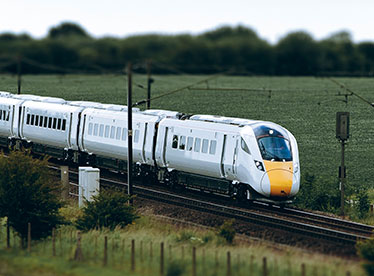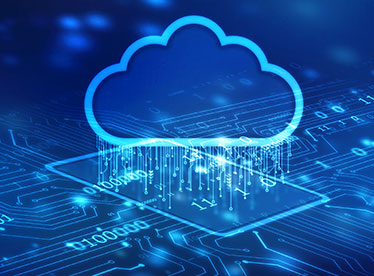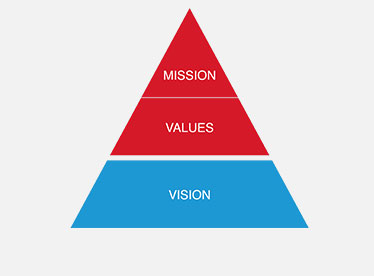-
Products
-
Transportation & Mobility Solutions
Transportation & Mobility Solutions
At Hitachi, we engineer industry-leading transportation and mobility solutions by leveraging decades of knowledge and using high-quality automotive material and components.
-
Energy Solutions
Energy Solutions
We believe the only solution for fulfilling the growing power requirements of industries and society is through a comprehensive portfolio of sustainable energy solutions and delivering innovative high-efficiency energy systems.
-
IT Infrastructure Services
IT Infrastructure Services
Hitachi’s state-of-the-art IT products and services are known to streamline business processes which result in better productivity and a higher return on investment (ROI).
-
Social Infrastructure: Industrial Products
Social Infrastructure: Industrial Products
Within the industrial sector, Hitachi is consistently delivering superior components and services, including industrial and automation solutions, useful in manufacturing facilities.
-
Healthcare & Life Sciences
Healthcare & Life Sciences
At Hitachi, we believe that healthcare innovation is crucial to a society’s advancement. A strong healthcare sector is often considered an inseparable element of a developed society.
-
Scientific Research & Laboratory Equipments
Scientific Research & Laboratory Equipments
Hitachi focuses on extensive research and development, transformative technology, and systems innovation to unfold new possibilities and create new value through scientific endeavors that strengthen the connection between science and social progress.
-
Smart Audio Visual Products
Smart Audio Visual Products
Since 1956, Hitachi audio visual products have provided state of the art solutions to consumers all over the world. It has been our pleasure to design competitive products at the lowest possible prices while maintaining our industry-leading quality standards for your comfort and enjoyment.
-
View All Products
Hitachi Products & Solutions
Hitachi, a technology leader in the U.S., offers a diverse set of products and solutions, and breakthrough technologies for smart manufacturing, green energy and mobility solutions that empower governments, businesses, and communities.
-
Transportation & Mobility Solutions
- Social Innovation Solutions
-
About Us
-
Hitachi in the U.S.A.
Hitachi in the U.S.A.
Discover information about the Hitachi group network across the Americas, upcoming events and sustainability endeavours, CSR policies, and corporate government relations.
-
About Hitachi Group
About Hitachi Group
Explore our leadership team, investor relations, environmental vision, and sustainability goals. Learn how Hitachi is leveraging its research & development capabilities for social innovation across industry verticals.
-
Hitachi in the U.S.A.
- News Releases
- Case Studies
- Careers
- R&D
Conflict Minerals Procurement Policy
There are numerous types of mineral resources buried within the lands of the Democratic Republic of the Congo, located in central Africa, and its neighbouring countries. Ores containing minerals such as tin which is used in solders to secure electronic parts to printed circuit boards, tantalum which is used in capacitors, tungsten which is used in superhard materials, and gold which is used in lead frames can be found in this region. The locals extract these ores, which traders and brokers export to other countries in order to earn valuable foreign currencies, but part of those foreign currencies are forcibly collected and used as funds to purchase weapons by armed groups that repeatedly engage in conflict and violate human rights in the same region, which has become a major problem. As such, the minerals listed above are called “conflict minerals”.
The policy for procurement departments in all Hitachi Group companies have always been and will continue to be to ensure that procurement activities do not result or aid in conflicts within the same region and that the armed groups described above do not benefit from those activities, while continuing responsible procurement activities of minerals that are not related to the conflicts in the region based on local laws. Additionally, we will continue to support the practice of due diligence based on the “OECD Due Diligence Guidance for Responsible Supply Chains of Minerals from Conflict-Affected and High-Risk Areas” among companies. With these in mind, Hitachi Group would like to request all our supplier to utilise the Conflict Minerals Reporting Template developed by RBA/ GeSI to continue checking the country of origin and supply chain of minerals, and also to procure from the CFS (Conflict Free Smelter)*1 listed within.
You can read the Hitachi Group Conflict Minerals Policy here.
*1 CFS (Conflict Free Smelter): A list of smelters who have been identified as “not being involved in the conflict within the same region” by the Responsible Minerals Initiative (RMI), an organization that was founded by the RBA/GeSI, which is a group that aims to solve the conflict minerals problem.







